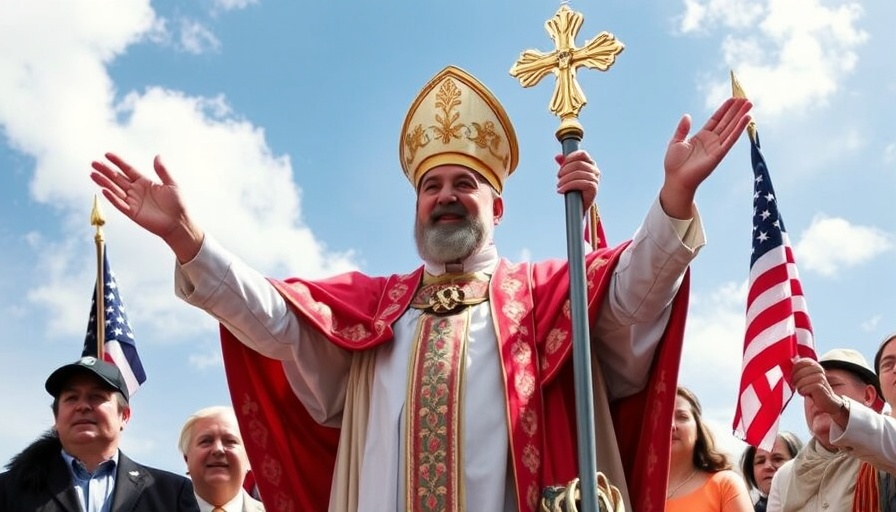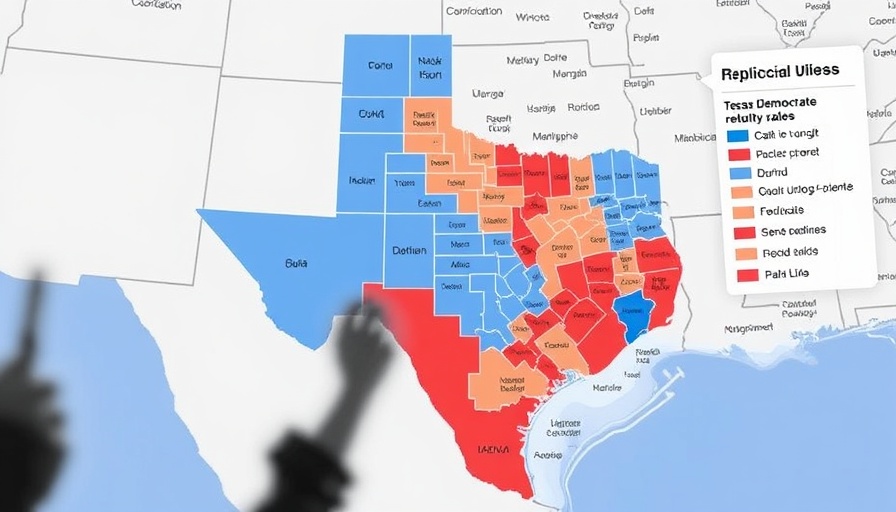
A Historic Celebration: The Rise of Pope Leo XIV
With a resounding cheer of "USA! USA! USA!" echoing through the Vatican's hallowed grounds, history was made as Cardinal Robert Francis Prevost was chosen as the first American-born pope, now known as Pope Leo XIV. This announcement not only shocked many within the Vatican but also stirred deep emotions in Catholic Americans across the globe, marking a significant moment in the church's journey.
Emotional Waves in St. Peter’s Square
The scene in St. Peter's Square was astonishingly jubilant. What typically symbolizes solemn reflection transformed into a spirited celebration reminiscent of a concert. Young clergymen dressed in traditional cassocks leapt joyfully, elevating their chant amidst the confusion of who had actually been elected. The moment Pope Leo XIV's name was finally known, a wave of pride washed over countless Catholic Americans present.
Diverse Perspectives: Who is Pope Leo XIV?
Despite the widespread ecstasy, many admitted they were not fully informed about the new pontiff. Amongst the excitement, there existed a reflective curiosity about his stances. The Maddox brothers from Utah, in attendance, conveyed a desire for a pope who would uphold traditional doctrines. As they celebrate their American roots within a hallowed international institution, they plan to learn more about a pope regarded as a moderate with a potential inclination toward caution in navigating progressive issues.
Reactions Across America: A Nationwide Celebration
Back home, the news sparked widespread joy among Catholic communities. The election of Pope Leo XIV transported hopes for change while still evoking nostalgia for past church teachings. Across various cities—Los Angeles, New York, and more—Catholics rejoiced, celebrating not just an election but a deep-rooted connection to their faith and cultural identity.
The Future of the Catholic Church: Hopes and Expectations
As we look forward, Pope Leo XIV represents not just a new face for the Catholic Church but also the potential for a shift in its dynamics. His rise sparks discussions about the direction the church will take. Will it embrace modernization, or will it guard existing teachings? The answers remain to be seen, but one thing is clear: many eagerly anticipate his leadership and the change it may bring.
What Pope Leo XIV Means for American Catholics
Contemporary change within such an ancient institution can be bewildering. As news spreads from one community to another, American Catholics may find comfort in having a familiar figure at the helm. This could pave the way for more engagement, openness, and a stronger bond between the papacy and American parishioners, urging them to become increasingly involved in the Church's global mission.
As these moments unfold, it is essential for Catholics to remain informed about their new leader and his intentions. The excitement surrounding Pope Leo XIV's election opens doors for necessary conversations about faith, discipline, and communal resilience.
Conclusion: Engagement and Reflection
As we navigate this pivotal moment within the Catholic Church, it is vital for followers to engage thoughtfully with the upcoming changes and the leadership of Pope Leo XIV. Join discussions in your community, reflect on your own beliefs, and embrace the opportunity to connect with your faith at a deeper level.
For further insights and ongoing coverage regarding Pope Leo XIV and related updates, make sure to stay tuned to reliable news sources and community announcements.
 Add Row
Add Row  Add
Add 




Write A Comment